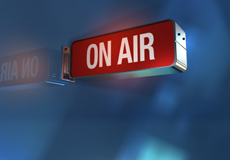By
Debra KaufmanJuly 12, 2017
Microsoft has a plan for providing inexpensive broadband access to underserved areas of the U.S., and its president/chief legal officer Brad Smith just declared the company’s support for that plan. The company has long advocated the use of so-called TV white-space technology — unused TV spectrum — to bring broadband especially to rural areas. As part of the plan, Microsoft would also urge the Trump administration and Congress to make sure that unlicensed white-space spectrum is available in every market in the U.S. Continue reading Microsoft to Provide White-Space Broadband in Rural Areas
By
Meghan CoyleJune 4, 2014
Unlike Google, Microsoft is not trying to connect the entire Earth by using drones or balloons. Instead, the company hopes to utilize television white space, an unused part of the broadcast spectrum, to provide more Internet access to people living in Africa. After running cost-effective pilot programs in the U.S. and Kenya, Microsoft has found that the challenge for Microsoft’s 4Afrika initiative is to persuade governments to lift regulations to allow them to utilize white space. Continue reading Microsoft Has Plans to Bring More Internet Access to Africa
By
Chris CastanedaJuly 25, 2013
Technology leveraging unused TV spectrum is being positioned for commercialization, three years after approval by the FCC. This technology can be used to provide wireless broadband Internet in rural areas in the U.S. and in developing countries. In the U.S., there are at least 40 experimental installations operating, in addition to others in Singapore, Vietnam and African countries. These programs involve Google, Microsoft and local telecom companies. Continue reading Unused TV Spectrum Provides Broadband for Rural America
